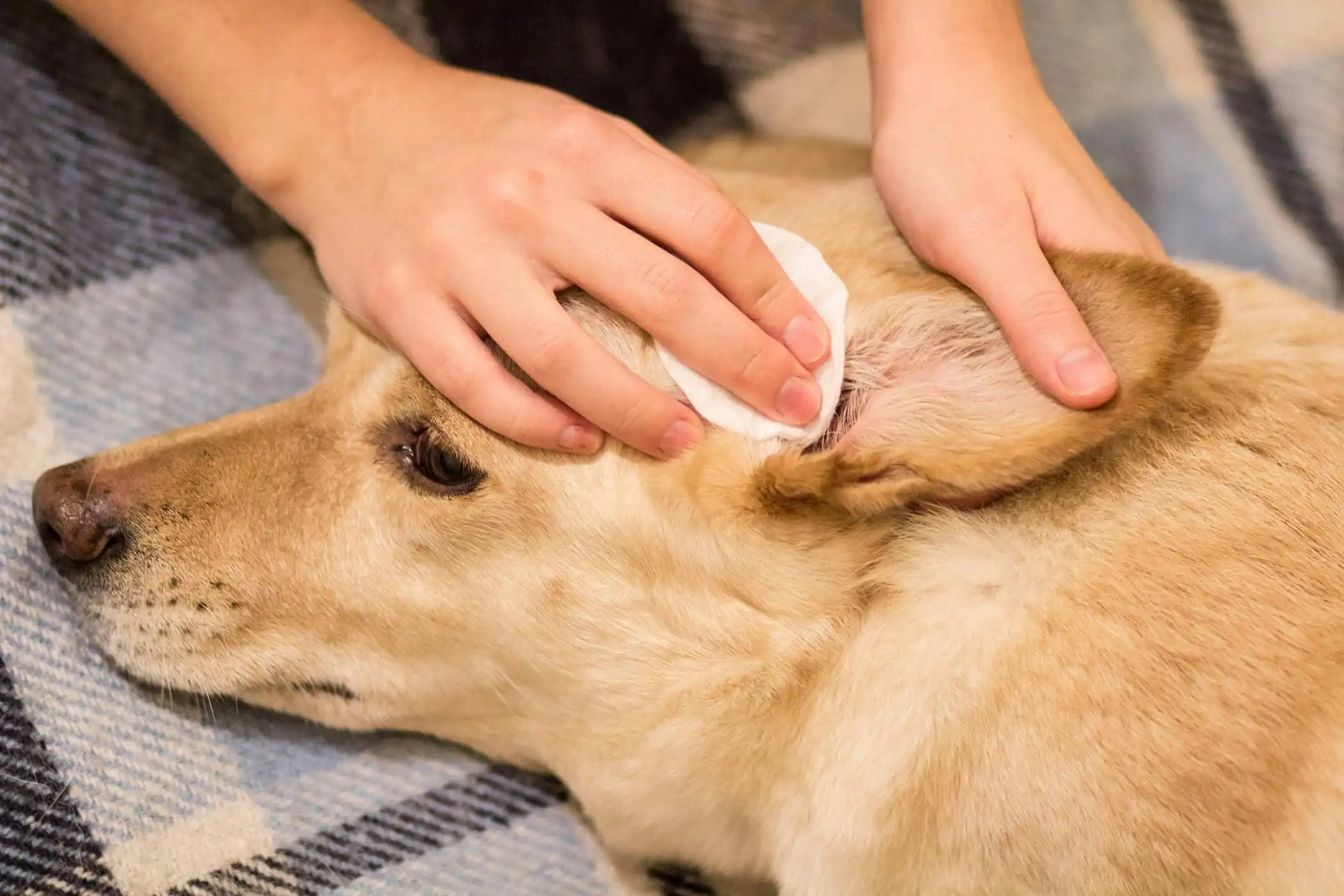Enterprise technology is revolutionizing pet care, particularly in the prevention of dog ear infections. Wearable devices and apps allow pet owners to monitor their dogs’ ear health in real time. By tracking moisture levels and activity patterns, these innovations enable early detection of potential issues. However, understanding the full spectrum of care and preventive measures is essential. What are the best practices that can enhance this technological approach?
Key Takeaways
- Utilize wearable devices to monitor your dog’s ear moisture levels and receive alerts for potential infection risks.
- Use mobile applications to track your dog’s ear health and activity, identifying patterns that may indicate ear issues.
- Regularly clean your dog’s ears with veterinarian-recommended solutions to prevent wax buildup and infections.
- Keep your dog’s ears dry after baths or swimming to minimize moisture accumulation, a common cause of ear infections.
- Consult telemedicine platforms for quick veterinary advice on ear care and treatment options for preventing infections.
Understanding Dog Ear Infections: Causes and Symptoms
Understanding dog ear infections is essential for pet owners, as these conditions can lead to discomfort and more serious health issues if left untreated. Ear infections in dogs are often caused by allergies, moisture, or foreign bodies. Common symptoms include shaking of the head, scratching at the ears, and foul odors. Recognizing these signs early can help prevent further complications. To effectively address how to prevent dog ear infections, pet owners should guarantee regular ear cleaning, especially for breeds prone to wax buildup. Keeping the ears dry after baths and avoiding exposure to irritants can also be beneficial. A proactive approach to ear health fosters a sense of belonging among pet owners dedicated to their furry companions’ well-being.
The Role of Technology in Pet Health Monitoring
How can technology enhance the monitoring of pet health, particularly in preventing conditions like dog ear infections? Innovative tools such as wearable devices and mobile applications are being developed to provide real-time health insights for pets. These technologies can track essential signs, activity levels, and even moisture in the ears, alerting pet owners to potential issues before they escalate. Additionally, data analytics can identify patterns that may indicate a predisposition to ear infections, enabling proactive care. Telemedicine platforms allow for quick consultations with veterinarians, fostering a collaborative approach to pet health management. By leveraging these advancements, pet owners can be more engaged in their pets’ well-being, ensuring a healthier future and potentially preventing dog ear infections effectively.
Effective Home Care Practices for Dog Ear Health
Effective home care practices play an essential role in maintaining dog ear health and preventing infections. Regular cleaning is important; using a vet-recommended ear cleaner helps remove wax and debris. Owners should gently wipe the outer ear with a soft cloth, taking care not to insert anything into the ear canal. Monitoring for signs of discomfort, such as scratching or shaking the head, can lead to early detection of potential issues. Additionally, keeping the dog’s ears dry, especially after baths or swimming, is critical. Providing a nutritious diet supports overall health, contributing to better ear conditions. Engaging with a community of pet owners can also offer valuable insights on how to prevent dog ear infections effectively.

Professional Veterinary Solutions for Ear Infections
While many dog owners implement home care practices to maintain ear health, professional veterinary solutions are essential when infections arise. Veterinarians possess the expertise to diagnose the specific type of ear infection, whether bacterial, fungal, or allergic in nature. They may perform examinations using specialized equipment, ensuring a thorough assessment of the dog’s ears. Treatment often includes medicated ear drops or oral medications tailored to the infection type. Additionally, veterinarians provide guidance on proper ear cleaning techniques and preventive measures to reduce recurrence. Regular check-ups can help detect early signs of ear issues, fostering a proactive approach to dog health. Ultimately, seeking professional help not only alleviates discomfort but also promotes long-term ear health for beloved pets.
How to Prevent Dog Ear Infections: Tips and Best Practices
To effectively prevent dog ear infections, proactive measures are essential for maintaining peak ear health. Regular ear cleaning is vital; owners should use veterinarian-recommended solutions to gently remove dirt and wax buildup. Monitoring the dog’s ears for signs of redness, swelling, or unusual odor can also aid in early detection of potential issues. Additionally, keeping the ears dry, especially after baths or swims, prevents moisture accumulation that fosters infections. Choosing the right dog breed is important, as some breeds are more prone to ear issues. Providing a balanced diet rich in omega fatty acids supports overall health, including skin and ear condition. By implementing these tips and best practices, dog owners can foster a healthy environment, minimizing the risk of ear infections.
Frequently Asked Questions
Can Certain Dog Breeds Be More Prone to Ear Infections?
Certain dog breeds, particularly those with floppy ears or excessive hair in the ear canal, are more prone to ear infections. Regular cleaning and veterinary check-ups can help mitigate these risks and promote overall ear health.
How Often Should I Check My Dog’s Ears?
Dog owners should check their dog’s ears weekly for signs of infection or irritation. Regular inspections help guarantee early detection of potential issues, promoting overall ear health and enhancing the pet’s well-being.
Are There Natural Remedies for Dog Ear Infections?
Natural remedies for dog ear infections include apple cider vinegar, coconut oil, and herbal infusions. These options can alleviate symptoms, but consulting a veterinarian is essential for proper diagnosis and treatment to guarantee pet health and safety.
What Signs Indicate a Severe Ear Infection in Dogs?
Signs of a severe ear infection in dogs include persistent scratching, shaking of the head, foul odor, swelling, discharge, and sensitivity around the ears. Prompt veterinary attention is essential to prevent further complications.
How Does Diet Affect My Dog’s Ear Health?
Diet considerably impacts a dog’s ear health. A balanced diet rich in omega-3 fatty acids can reduce inflammation, while certain allergens may exacerbate ear issues. Proper nutrition promotes overall well-being, including healthier ears.
Conclusion
To summarize, the integration of enterprise technology in pet care greatly enhances the prevention of dog ear infections. By utilizing wearable devices and mobile applications, pet owners can actively monitor their dog’s ear health, ensuring timely intervention when issues arise. Coupled with effective home care practices and professional veterinary support, these innovations empower pet owners to take proactive measures, ultimately safeguarding their furry companions’ well-being and promoting a healthier, happier life for their dogs.
You May Also Like To Read:



